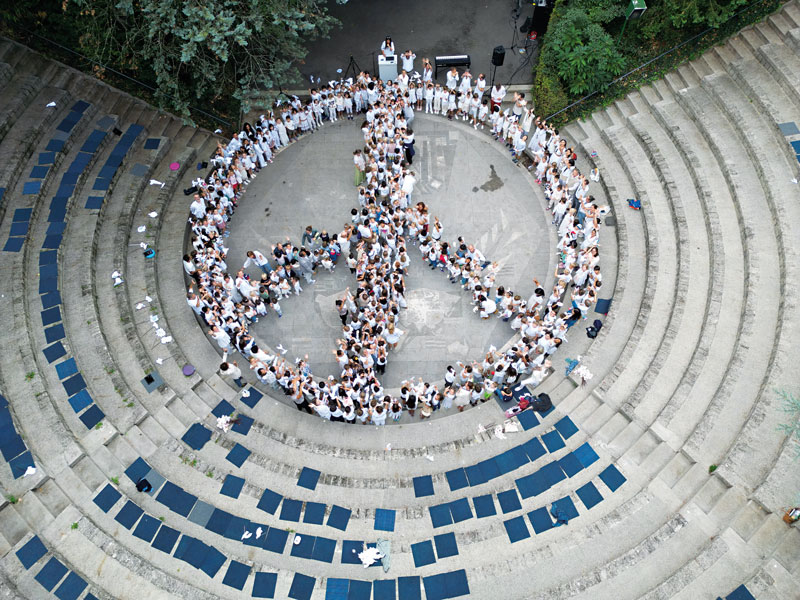
Top 5
One of the most challenging problems of practice that teachers face in schools is how to discuss burning political events, including war. This is especially delicate in international schools, such as the Ecole Internationale de Genève, where many nationalities are represented in the community, sometimes from the very nations at war. There is a temptation to avoid any mention of sensitive events, since schools are not political entities. However, decades of research on preventing prejudice and violence through education remind us that students must be given a space to discuss how they feel. The problem for teachers is how to scaffold such discussions.
Three principles, three strategies
In 2020, I led the publication of a UNESCO study entitled ‘Preventing violent extremism through education: from policy to practice,’ with contributions from curriculum experts, psychologists and philosophers. Based on what came out of this work, I would like to suggest three principles and strategies for educators to consider.
The first principle is that everyone is safe here. Wars create fear, anxiety and distress but also scapegoating, bullying and ostracism. It is the first duty of educators to know their students and the extent to which they might be affected by a conflict. No teasing, accusation, or discriminatory behaviour is ever acceptable, but this message needs to be reinforced in times of war. We should approach children from affected areas openly and check if they are alright. There should be a plan in place so that traumatised children know where to go to if the burden becomes too much.
The first strategy is therefore to create a safe space. Ask students how they are, as a class and individually. Be attentive to their mood and behaviour and give them a chance to express how they are feeling.
Use school resources, including psychologists and counsellors, to create a programme to support distressed students.
Searching for truth
The second principle is critical thinking. The first casualty in war is the truth: propaganda abounds and the chaotic, unfiltered world of social media both desensitises users and feeds them ideologically skewed accounts of conflict. Knowing what to trust and how to form an opinion is difficult, and this is why students need to be introduced to an empirical criterion of meaning.
The job of the teacher is to educate students how to think, not to tell them what to think
Hence the second strategy is to check your bias and get students to check theirs. Ask yourself what your assumptions are and how you project them, unconsciously or consciously, onto the way you chair discussions and present materials. The job of the teacher is to educate students how to think, not to tell them what to think. For their part, students should always ask themselves what their sources of information are.
The third principle concerns higher order moral imperatives. The teacher’s work is ultimately to lead the discussion to a level that is more general and is transferable to other situations.
So, the third strategy is to take discussions to this higher level. This allows students to leave the lesson with powerful syntheses or ‘headlines’ that are philosophical in nature. It also means closing discussions above the confusion of heated positions and moving towards a place of agreement. Sometimes we cannot end with a universal understanding, but instead a lingering universal question.
Skills development
To assist teachers in this aspect of their work, we are offering a new course at the Ecolint Institute of Learning and Teaching entitled ‘Teaching in Times of Conflict.’ This two-session in-person, one-session online workshop provides educators with various practical strategies. Delivered through expert-led presentations and facilitated breakout sessions, the course covers presenting unbiased information, supporting students’ emotional well-being, answering challenging student questions and reflecting on these practices. Participants will leave with a Certificate of Completion from the Ecolint Institute, recognising their participation and skills development.
The need to look after students and colleagues affected by war is of paramount importance. But avoiding the discussion of global events will not help students to become caring, critical thinkers. Hence the challenge facing us as educators. One thing is for sure, if we do not curate these discussions, social media will do it for us and that will not provide the support needed to nurture critically minded global citizens.


